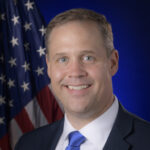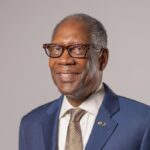Space Matters: Live from the 2024 Space Symposium
In this special edition of Space Matters, live from the 39th annual Space Symposium, industry experts discuss the increasing commercialization of space and how governments aim to further integrate their goals with this rapid growth.
This Space Matters panel features chairman of the user advisory group of the National Space Council Gen. Lester Lyles. He joins BryceTech CEO and founder Carissa Christensen, and former NASA administrator and former U.S. Rep. Jim Bridenstine. The panel is hosted by Meghan Allen of Space Foundation.
Space integration
“Talking about full integration and partnership, not just augmentation, means you have to approach everything in a different way,” Gen. Lyles said. “From the very beginning, looking at warfighting or any military activity that you’re doing, how can you ensure that you’re taking advantage of all the possible capabilities that are out there, not just military, but commercial and civil.”
Bridenstine praised the idea of integrating government and commercial capabilities in space. He acknowledged that more specifics are needed to support that cooperation everywhere from low-intensity conflict all the way to potential near-peer conflict. To achieve this, he identified the need for increased STEM education in the United States.
“We have to get kids interested early, and in my opinion to do that, we have to do stunning things that make them want to get involved in our industry,” Bridenstine said. “And those stunning things of course would be going to the Moon, going to Mars, and letting them grow up wanting to be part of that entire apparatus.”
STEM education
When discussing STEM education and America’s space workforce, the panel highlighted the critical role technical and trade skills play. While many space jobs require four-year degrees, many others can be channeled directly from community colleges and trade schools.
“If you look at job listings from aerospace companies, the ones that sit there the longest, sometimes for months, are the technical trades,” Christensen said. “I think a really important point is that it’s not necessarily an either/or, with college or a technical degree. There are hybrid pathways that I think can be very powerful.”
The panelists begin their discussion at 3:05.



